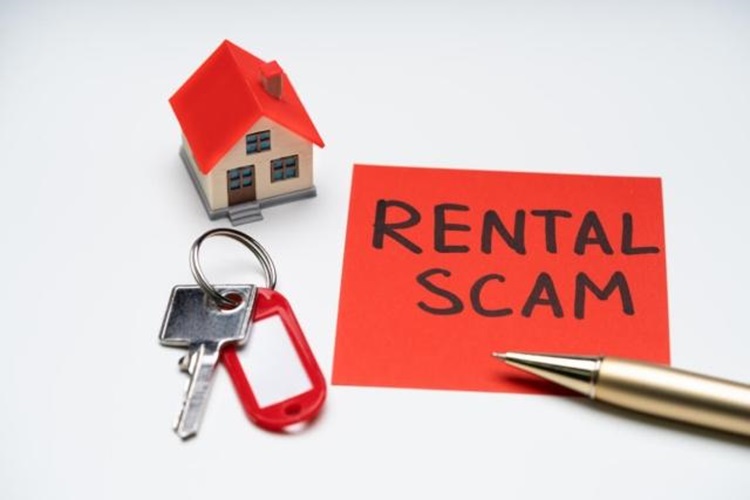
Rental scams are an increasing concern for tenants across India, with fraudsters taking advantage of the demand for housing to cheat unsuspecting renters out of their money. These scams often involve fake listings, deceptive landlords, or fraudulent lease agreements, leaving tenants without a home and sometimes losing their deposits. Learning how to spot and avoid these scams is crucial for anyone looking to rent property in India.
1. Common Types of Rental Scams in India
Rental scams come in various forms, but here are some of the most common ones targeting tenants:
a) Fake Listings
Scammers create fake rental listings for properties that don’t exist or are not available for rent. They often post attractive photos and offer below-market rates to lure in tenants. Once interested tenants contact them, they ask for an advance payment or security deposit to secure the rental. After receiving the money, the fraudsters disappear, leaving the tenant without a property.
b) Phantom Landlords
In this scam, someone posing as a landlord rents out a property they don’t own. The scammer may have access to the property for a short period, allowing them to show it to prospective tenants. Once they collect the deposit and rent, they disappear, leaving the real property owner and tenants to deal with the aftermath.
c) Illegal Subletting
Some fraudsters rent a property from a legitimate landlord and then illegally sublet it to multiple tenants. Each tenant believes they are the sole occupant, but when the actual owner or other tenants show up, it becomes clear that the scammer has taken money from multiple victims.
d) Advance Payment Scams
In this scam, the fraudster pressures the tenant into paying an advance, often before seeing the property in person. The excuse may be that the property is in high demand or that the landlord is out of town. Once the payment is made, the scammer either ghosts the tenant or claims the property has been rented to someone else, keeping the advance.
e) Fake Lease Agreements
Fraudsters may draft fake lease agreements that include misleading or illegal clauses, such as non-refundable deposits or excessive fees. Tenants who don’t carefully read the agreement may end up losing money or facing legal issues later.
2. Warning Signs of Rental Scams
Being able to recognize the red flags of rental scams can save you from falling victim to fraud. Here are some common signs to watch out for:
- Suspiciously Low Rent: If the rent for a property seems too good to be true compared to similar listings in the area, it could be a scam. Fraudsters often attract tenants by offering below-market rates.
- Unprofessional Communication: Scammers often communicate in vague or unprofessional ways. They may avoid answering specific questions about the property, refuse to meet in person, or push for online communication only.
- Demand for Advance Payment: If the supposed landlord demands advance payment or deposit before allowing you to view the property or sign the lease, it’s likely a scam. Legitimate landlords will allow you to inspect the property before asking for money.
- No Physical Viewing: A common trick used by fraudsters is to claim that they are out of town or abroad, making it impossible to show the property in person. They may offer excuses like sending a “representative” to handle the deal. Always insist on seeing the property in person before making any payment.
- Lack of Documentation: Scammers rarely provide proper documentation such as ownership proof, identity verification, or a proper rental agreement. If the landlord is unwilling to share documents or avoids putting things in writing, this is a red flag.
3. How to Avoid Rental Scams
a) Research the Property and Landlord
Always do thorough research before committing to a rental. Use online property portals to check if the property is listed elsewhere and whether the details are consistent. Additionally, use tools like Google Maps to confirm the existence of the property at the given location.
Ask for the landlord’s identification and proof of ownership, such as property tax receipts or utility bills. Verifying the landlord’s identity ensures that you are dealing with the rightful owner or an authorized agent.
b) Never Pay Without Viewing the Property
One of the golden rules of renting is to never pay any money before physically inspecting the property. If a landlord insists on payment before a visit, it’s likely a scam. Make sure to visit the property in person to verify its condition, amenities, and location.
c) Meet the Landlord in Person
It’s always best to meet the landlord face-to-face before signing any lease or paying money. If the landlord avoids in-person meetings or offers excuses, this is a strong indicator of a scam. If the landlord is based abroad, you should approach the deal with caution and seek additional verification.
d) Verify Legal Documentation
Ensure that all legal documentation is in order. Ask for a copy of the lease agreement and take time to read it thoroughly. Check for clauses regarding the rent amount, security deposit, maintenance responsibilities, and the notice period for vacating the property. Avoid signing any agreement that seems unclear or unfair, and consult a legal expert if needed.
e) Use Reputable Platforms
When searching for rental properties, use well-known and reputable property listing platforms. These platforms often have verification processes in place that help to weed out fraudulent listings. Avoid engaging with landlords who contact you via unverified channels or social media.
f) Check Tenant Reviews
If possible, speak to current or previous tenants of the property. Their experiences can offer valuable insights into the property and landlord. Tenant reviews can be found online or by simply asking for references from the landlord.
g) Document Everything
Keep a record of all communications with the landlord, including emails, text messages, and receipts for payments. Having a paper trail will protect you if any disputes arise later. Also, ensure that any payments made are documented and preferably done through bank transfers rather than cash.
4. Reporting Rental Scams
If you fall victim to a rental scam, report it to the local authorities and cybercrime cell. Filing an FIR (First Information Report) with the police is essential, and you should also contact the property listing platform if the scam occurred through an online listing. Additionally, share your experience on public forums to warn others about the scammer.
Conclusion
Rental scams are a growing problem in India, with tenants increasingly falling prey to fraudsters looking to exploit the housing market. By staying vigilant and taking preventive measures—such as verifying property details, meeting the landlord in person, and using reputable platforms—you can avoid the pitfalls of rental fraud. Always prioritize due diligence and proper documentation to ensure that your rental experience is secure and legitimate.
